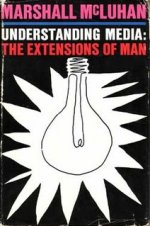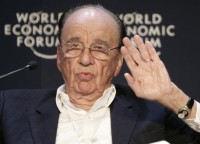A New Haven alderman and his wife were involved in a shoving match at their home shortly before 2 a.m. this past Saturday, according to police. The incident serves as a textbook illustration of how to handle reader comments — and how not to.
The alderman, Darnell Goldson, is African-American, a fiscal conservative and a high-profile critic of Mayor John DeStefano. The city’s daily newspaper, the New Haven Register, and a nonprofit news site, the New Haven Independent, published brief stories on the altercation. The Register allows anyone to post comments immediately, though offensive ones can be removed if someone complains, or if someone on the Register’s staff catches it. The Independent screens all comments before posting.
Over the past year I’ve interviewed a number of folks in the city’s large African-American community. Invariably, the Register’s comments policy is near the top of their list in complaints about the Register. The Independent doesn’t necessarily get perfect scores on that front. But because blatantly racist comments are not allowed at the Independent in the first place, black readers generally give the Independent high marks for trying to encourage a civil conversation.
Here are some of the dicier comments you’ll find about the Goldsons at the Register right now — some racially charged, some just in incredibly poor taste:
Probably a drug related incident !
Pretty rough neighbor hood. ”
…
Obviously a personal matter that was fueled by something egregious.
Common sense would dictate some type of marital discord that involves “whoopee”, “friends with benefits” or a series of one-night-stands.
No big deal as this type of behavior is quite common in Ward 30
…
Hmm,I wonder…Would you all be so quick to rush to bury this man if instead of “Darnell”, his name happened to be “Daniel”,”Christopher”, or some other, more caucasian name?Racism pervades so many comments made on this page that it makes me sick.If you are a racist loser, come right out and say it, don’t dance around the subject by negatively commenting every time someone with a name like “Jamal, Tyshawn, or Darnell” is referenced in an article!
…
Its because the ones with the names like Jamal, Darnell, Tyshawn, LaKeisha, Tyreeka, etc are the ones we hear about causing most of the trouble and committing most of the crimes in the area.
Call it racist if you want, but the bad citizens in your community are the ones giving black people a bad name. The rest of us normal citizens who do work and who do stay out of trouble are just really sick of hearing black people cry racism when there are so many of you causing your own problems.
…
Cheer up everybody, the makeup sex is going to be incredible!
Please understand that I’m not saying the Register condones such comments. Its commenting policy says, “We ask that you be polite. Offensive comments will be removed and repeated offensive comments could lead to being banned from commenting. In no way do the comments represent the view of nhregister.com.” And based on what I’ve seen in the past, I expect some or all of these comments will be gone before long.
But by not taking responsibility for comments before posting, the Register opens itself up to charges of offensiveness and of insensitivity to the black community.
By contrast, the Independent’s policy begins: “Yes we do censor reader comments. We’ll continue to.” And if you look at the comments appended to the bottom of the Independent’s story, you won’t find anything remotely like what I’ve quoted above.
This has nothing to do with free speech. It’s about brand, reputation and journalistic standards. It’s also about whether you think of comments as a way to build community, or simply as a tactic to drive up page views.
No responsible editor would allow ordinary people to be quoted making such remarks, especially anonymously. Nor would an editor publish such garbage as a letter to the editor. Why should comments be any different?




 Today is the 100th birthday of Marshall McLuhan, the Canadian scholar who forever changed the way we think about media and their effects on the human psyche.
Today is the 100th birthday of Marshall McLuhan, the Canadian scholar who forever changed the way we think about media and their effects on the human psyche.